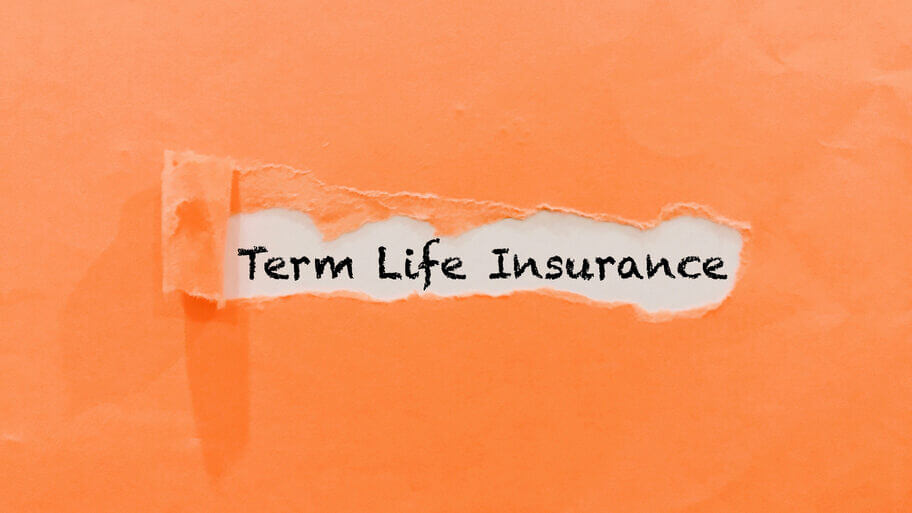The difference between term life insurance and whole life insurance is pretty straightforward. Still, it is crucial to fully understand each insurance type before you even start shopping for a policy online.
If you don’t understand the essentials beforehand, you run the risk of buying a life insurance policy that neither satisfies your needs nor gives your loved ones the financial protection they need after you pass away.
After all, the purpose of life insurance is to make sure you can support your family even in the event of your death. This article will teach you how to choose between term life insurance and whole life insurance without getting confused by the fine print.
So, here are the basic facts you should understand to make the best choice.
What Is the Difference Between Term Life Insurance and Whole Life Insurance?
Here are the most vital differences between term life and whole life insurance that you need to understand before buying a policy.
Duration
The primary difference between whole life insurance and term life insurance is the duration of the policy.
Term life insurance is only in effect for a specified duration, usually in increments of five years, ten years, or twenty years. Your beneficiaries will not receive a death benefit if you die after the term of the policy.
Some term life insurance policies offer longer periods. However, people will usually convert these longer-term policies into a whole life policy eventually.
On the other hand, whole life insurance provides coverage over the entire span of your life, as soon as the insurance is active. Your coverage will only end if you fail to pay your premiums for an extended amount of time or if you surrender the policy.
Whole life policies provide the same benefit no matter when you pass away. This may be preferable to term life insurance which will not provide a death benefit if you live beyond the duration of the coverage.
Policy Features
You may not know that whole life insurance can earn interest at a fixed, predetermined rate when you buy the coverage. Thus, whole life policies are more financially flexible and come with additional perks that term life policies don’t include.
Whole life insurance also has cash value. So, you can surrender your policy and receive a cash payout.
You can also use a whole life insurance policy as equity. For instance, let’s say an insured owns a $50,000 whole life policy and needs to put a down payment on a new home. If the insurance comes with an investment feature and they’ve paid into the policy enough, this person can leverage the equity built up in the policy to get a home loan.
The bottom line is that term life policies don’t gain interest and don’t have any cash value. This means you can’t “cash out” the policy or use it as equity.
So, which of these types of life insurance allows the policy owner to experience more benefits? Ultimately, whole life insurance has more attractive features and benefits than term life insurance.
Cost
For many of us, choosing which type of life insurance works best for our needs comes down to the cost.
Of course, the actual cost of your insurance policy will depend on several factors, such as your age, health, and the amount of money you want to provide for your family.
If you don’t need a lot of benefits, you may want to search for cheaper policies. However, insurance is subject to certain minimums, which life insurance policies typically specify in the fine print.
In general, whole life insurance will have higher premiums and overall costs than term life insurance. However, whole life insurance also typically comes with a relatively stable price over time.
The higher cost of whole life insurance also comes with significant benefits; the money you invest collects interest, your family will receive a payout regardless of how far in the future you die, and you can cash out your insurance or use it as equity for a loan.
You may pay less for term life insurance, but if you outlive the policy, neither you nor your beneficiaries will receive this money back.
So, if you can afford whole life insurance, that may be the preferable choice. But this insurance is not attainable for everyone. You may not be able to afford the amount of coverage you want under a whole life insurance policy.
If this is the case, you may want to purchase term life insurance instead. If your financial situation has changed once that term is up, you can always switch to whole life insurance at that point.
You must consider your finances when choosing a life insurance policy that is right for you, especially if you have long-term debt like a mortgage.
Which Type of Life Insurance Is Best?
Ultimately, the best type of life insurance for your needs depends upon your financial situation, how long you need the coverage, and how you want your beneficiaries to receive the payout after you pass away. It also depends on the actual expenses and debts that you need to cover after you pass away.
For example, what if you want to make your loved ones financially secure by providing them a steady income based on the beneficiary amount?
That’s an option, but only if you buy specific whole life policies.
On the other hand, if you only need life insurance to cover a specific debt – like a mortgage – a term life policy may be the better option, especially if it comes with a decreasing amount of benefits.
To determine what the best option is in your particular situation, you should consult with a certified financial advisor.
Are There Other Life Insurance Options Available?
Whole life and term life are the two major choices when it comes to life insurance.
However, if neither of these options seems quite right for you, you may want to consider other permanent life insurance options such as universal life insurance, variable life insurance, or indexed universal life insurance. These types of insurance are quite similar to standard whole life insurance but have several different features that may interest you.
Another option you may not know about is a term 80 life insurance policy. This may be a good option for you if you can’t decide between a whole or term life insurance policy.
Term 80 Life Insurance Explained
A term 80 life insurance policy is pretty straightforward. It’s a type of term life insurance policy that renews every year, so you end up “locking in” your benefits for one year at a time.
The caveat is that your rates may increase with each renewal. A term 80 life insurance policy may start with a lower monthly premium, yet this amount can increase over time.
Read More: Which kind of health insurance is best for me?
The name of these policies is “term 80” because you can continue to renew the policy until you turn 80-years old.
Featured Image: Twenty20








